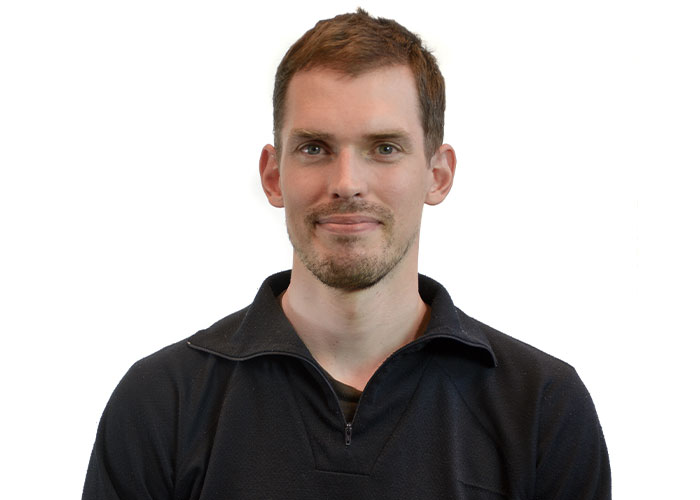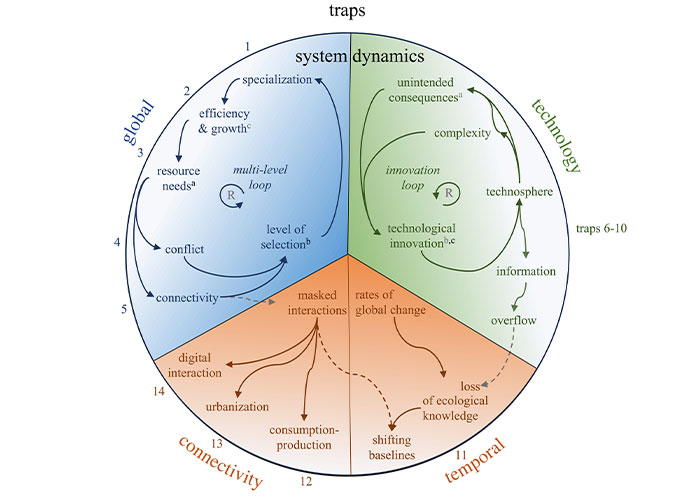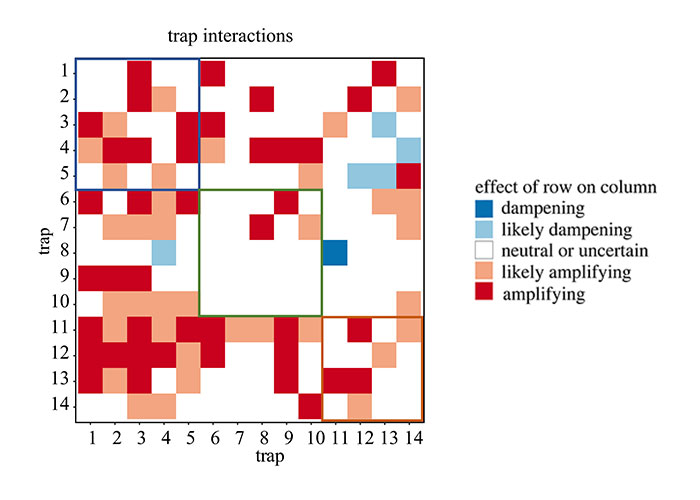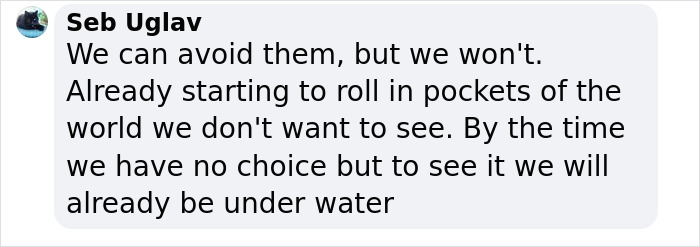As if we haven’t been collectively subjected to enough depressing news lately, scientists have found more evidence that suggests our species’ future is not guaranteed.
A team of researchers from the University of Stockholm in Sweden recently outlined 14 different “evolutionary traps” that could potentially wipe us out of this planet.
As it turns out, one of the problems we face centers around the fact that we’ve been doing too well for ourselves, and therefore, our dominance and success are now leading to dangerous consequences,Science Alertreported.
Scientists have identified 14 “evolutionary traps” that may drive humanity to extinction

Image credits:Luca J/Unsplash
Moreover, humanity is currently going through a polycrisis, which means we are facing multiple threats, including climate change and global pandemics.
These threats could potentially bring the Anthropocene era – the geological epoch dating from the start of significant human impact on Earth’s geology – to an end a lot sooner than it had been previously anticipated.
Peter Søgaard Jørgensen, from the University of Stockholm, saidin the research: “Humans are incredibly creative as a species.
“We are able to innovate and adapt to many circumstances and can cooperate on surprisingly large scales.
“But these capabilities turn out to have unintentional consequences.”
“We are able to innovate and adapt to many circumstances,” researcher Peter Søgaard Jørgensen said

Image credits:Stockholm Resilience Centre
The paper states that out of the 14 possible evolutionary dead ends for humanity, five are described as global.
These global traps encompass “simplification”, which is described as a group of systems that are too specialized to adapt – such as monoculture farming -, “growth-for-growth”, referring to a non-stop pursuit of growth ultimately harming our well-being, “overshoot” which refers to using more than what the Earth can provide, “division”, described as international conflict, and “contagion”, embodying infectious diseases.
The additional five traps are referred to as technology traps, and they include “infrastructure lock-in”, such as fossil fuels, chemical pollution, existential technology such as nuclear arms, technological autonomy, for example, artificial intelligence, and dis/misinformation.
“Humankind is at risk of responding to new phenomena in harmful ways,” Peter explained

Image credits:Søgaard Jørgensen et al., Philosophical Transactions of the Royal Society B, 2023
The last four traps are identified as structural traps and consist of “short-termism”, overconsumption, “biosphere disconnect”, and local social capital loss, described as a digital world ending social interaction and conceivably growing our division.
Scientists have reportedly found that 12 of these traps have already progressed to an advanced state.
According to the research, technological autonomy and local social capital loss are the only traps left that have yet to evolve into concerning problems.
Peter explained: “Evolutionary traps are a well-known concept in the animal world.
Nevertheless, the scientists have not given up on us yet, and have stated that our world now needs active transformation.
These “dead ends” include international conflict, infectious diseases, artificial intelligence, and chemical pollution


Image credits:Jacek Dylag/Unsplash
“There’s nothing better than exposing yourself to what needs protecting.”
As the scientists have found that we are not yet doomed, Peter highlighted the fact that humans have the capability to change collectively.
“Our creativity, and our power to innovate and collaborate equip us with the perfect tools to actively design our future,” he said.
Certain individuals weren’t too happy about the news

Peter continued: “We can break out of dead ends and business-as-usual, but for that, we must nurture the capacity for collective human agency and design settings where it can flourish.”
This situation was then said to pose a substantial risk of instigating significant alterations inEarth’s environmental conditions.
Some readers argued that 14 traps sounded like a small number






 Lei RV
Lei RV
Renan Duarte
News